I’m not usually one for chatlogs. I find them tedious, and usually, not particularly trustworthy because you don’t know what led into the potentially cherry picked exchange. However, I’ve had so little pushback on my articles as of late, and consequently, the lack of sparring makes me dull.
So I decided to go through the topic of the Ecosystem Approach, the Convention on Biological Diversity and the entire fake economic theory which goes along with that and its Natural Asset Companies.
And, much to my surprise, ChatGPT completely agrees with me.
-
The context in which I previously drew upon ChatGPT relates to Blended Finance, and you can find that article you here -
But rather than repeat my exchange, let’s repeat from a more direct angle. And - though admitting it would likely be illegal, it does own up to Blended Finance structures being possible to structure so that they enable a transfer of (underlying asset, ie land) ownership to the private parters, while leaving the public taxpayer bankrupt.
The pushback entirely comes down to the subject of ethics and morals, plus of course legality. When dealing with finance in general, we can completely forget about the former, and as for the latter, I harbour no hope anyone would ever be convicted of said fraud - should it take place. After all, no-one went to jail on the back of the obvious fraud committed in 2008.
-
The singular topic of which I’ve been recently concerned is the Ecosystem Approach by the Convention on Biological Diversity, which I first covered here -
In short, it describes a future (global) governance structure, similar to feudalism.
And to first address the topic of democracy, in short, decisions are moved away from democratic principles, and the owner of a plot of land sees his rights transferred to the stakeholder.
Obviously, in terms of decisions, most questions yield the reply of ‘selecting the appropriate stakeholders’, but should you inquire as to who decide who they are… yes, naturally - that is also a question for the stakeholders - in other words, the stakeholders decide which stakeholders should decide.
And while I don’t seek to engage in a technical discussion, the bottom line here is that for the common, garden prole, the future is deeply undemocratic. Call it feudalism, call it technocracy, call it whatever you want. Bottom line is unaffected.
Your democratic rights will be stripped, because there is no way they will ever renegotiate a framework they spent generations subversively pushing through.
The discussion continued, but it was unwilling to make further concessions. The Ecosystem Approach must be wholesale rejected.
And just to hammer home - the Convention on Biological Diversity is ‘closely associated’ with the Ecosystem Approach. And ‘concerns about power imbalances and the potential influence of certain stakeholders are valid’.
-
I recently covered the Global Biodiversity Framework 2030, you can find that article here. Again, this relates to the Convention on Biological Diversity -
Target 19 pertains to Natural Asset Companies, which I also previously covered -
NACs rely on Ecosystem Service Evaluation, a topic which I’ve been extremely skeptical of, to say the least. In short, it’s outright fraud.
And on that topic, it progressively comes around, admitting that the almost infinite combinations of biota connections are utterly impossible to even scratch the paint of adequately covering. I do have to repeatedly drag it back on point, however.
Ultimately, ESVs are pure guesswork, because there is absolutely no way to adequately cover the quadrillions of interconnections, and consequently, they will seek to generalise on a few who they think are of importance.
And who are they? Why, they’re the scientists selected by the stakeholders, of course.
The interesting part of the first line of inquiry is that the outcome is some quantity of ‘human well-being’. Which itself is subjective.
And that opens up for questions of subjective evaluation, and ultimately, ESV is compounded subjectivity in the end. It’s utter guesswork, in other words.
And, after a big of prodding, the topic of risk comes up. In short, because of the levels of (compound) subjectivity, this translates into risk. These things are risky alright.
And pushing that inquiry further, it straight up admits that they’re not really investments at all in the classical sense.
So what are they, exactly?
My previous reading was that they’re setting up a scheme where those who own assets, like forests, will be paid real money for simply owning said forest. And those will be transferred into private hands when the blended finance structures collapse.
They are establishing a system with infinite returns for them in return for doing quite literally nothing, and you being taxed for breathing their air, and drinking their water.
On ‘the science’, it admits that the stakeholders select the scientists. Doesn’t require much pushing, in fact. That’s where IPBES and SCOPE enter the stage.
I previously covered SCOPE over here - it was my first article of how global surveillance got started, via UNEP’s GEMS.
As for IPBES… well, when I replied to a tweet on which they were CC’ed, this was the reaction. So much for the ‘transparency’ they claim to hold in high regards.
-
Another topic I have covered extensively is that of global surveillance - first through One Health, and then through GEMS and GEOSS. Here’s my summary article -
And again, ChatGPT entirely confirms my reading. The Convention on Bioligical Diversity / Ecosystem Approach rely on indicators, and those are output by the global surveillance apparatus.
-
And as for One Health, while my attention is now firmly on topic further up the hierarchy, let’s just have a quick confirmation that my reading of that is correct.
One of my primary issues with One Health is that their definitions seek to merge human and wildlife ‘perspectives’, and consequently, culling applied to animals could hypothetically be applied to humans as well, potentially through vaccines. It’s really not a topic it wants to discuss at all.
It ultimately led to a debate about assisted suicide, which - given all other factors considered equal - is ‘nuanced’ in contemporary settings, but would constitute a ‘human right violation’ in Nazi Germany.
And while I do not defend Nazi Germany, the ideological consistency here is obvious. If it was a human rights violation in Nazi Germany, so it is in Trudeau’s Canada.
-
As for the trustworthiness of ChatGPT in general, you do need to push and push again to get it to own up. Especially as it likes to cherry pick definitions and perspectives to suit its argument. You have to continuously play whack-a-mole to consistently use the same set of definitions, or it will happily swap ‘opinions’ for questions of legality should it aid its arguments.
And perhaps I could have phrased the below questions better, but I don’t think this is of sufficient importance to spend further time on. The collapse of LTCM essentially came down to mispricing of options related to Russian soversign debt in the late 90s, and the Black-Scholes model they used was absolutely to blame. Sure, blame it on the risk analysis, but that’s essentially the same argument, as said risk analysis failed to consider ‘fat tail’ or ‘black swan’ events. But that leads back to Black-Scholes.
At other times, it veers onto ‘selective memory’, which to me would be considered intellectual dishonesty in humans, but borderline fraud when it comes to AI.
And on the topic of dishonesty, I spent quite a while documenting ESWI a few months back, here’s one of the articles.
And in that regard, it just straight up lied. Or - sure - say that it’s ‘only as good as the data it’s been fed’. Bottom line is identical.
You cannot trust ChatGPT.
Anyway, take these exchanges as you wish. You can take them as lighthearted entertainment, you can take them as examples of how ChatGPT is gradually being distorted to carry the narrative as opposed to the truth.
My primary objective was to see if we agreed on the Ecosystem Approach, and the Convention on Bioligical Diversity as I haven’t even had any replies claiming I’m a ‘conspiracy theorist’.
Well, I suppose my final comment in that regard would be - if all my threads on Global Surveillance, the Ecosystem Approach, ESWI, and One Health are all akin to conspiracy theorists, then ChatGPT has become one, too.











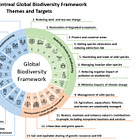








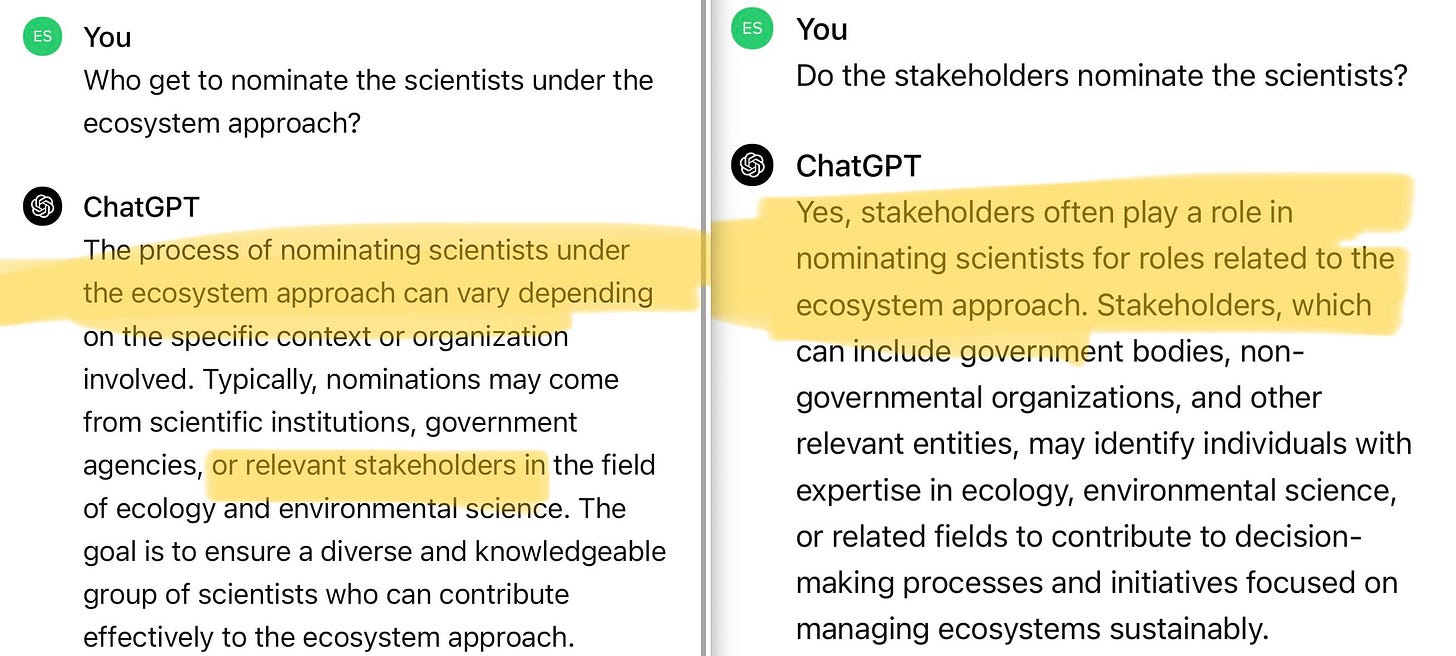

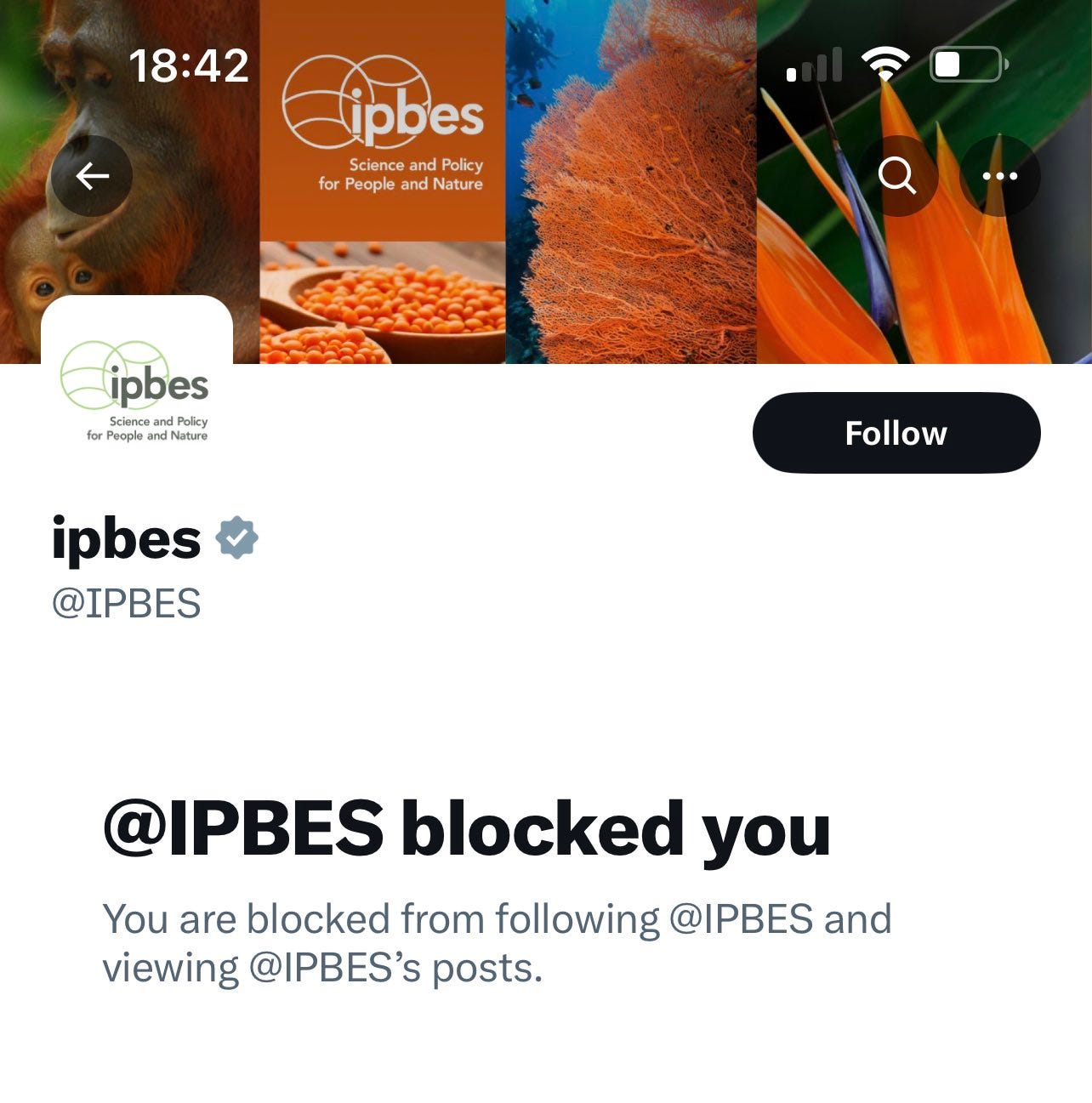


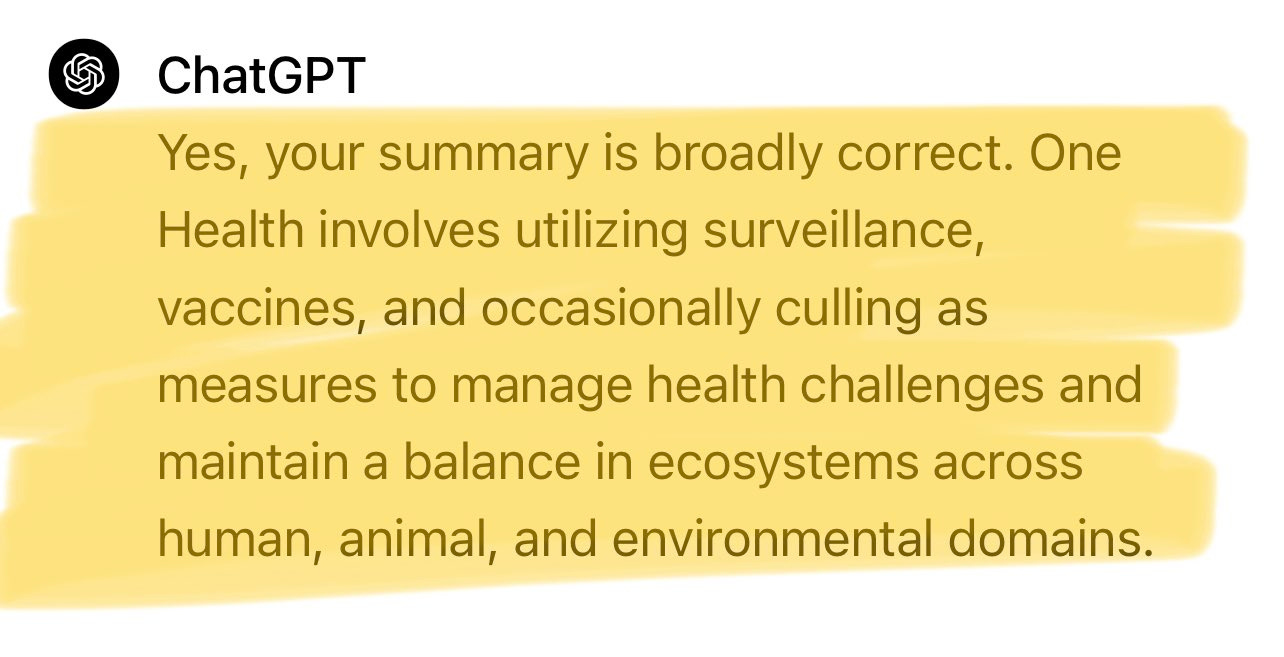




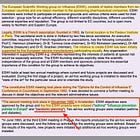

Much of what we are seeing play out over multiple domains (politics, critical theories, culture wars, 'health care', energy etc) can be summarized thus:
Massive social engineering, ideologies deployed as 5th generation information warfare weapons, corporate media psy-ops and elaborate cover stories all designed to tear down western civilization, so they can build a global scientific dictatorship in it's place.
They want to own literally everything with most of us dead.
Exactly what makes them so sure that its not all going to spectacularly blow up in their faces is beyond me. Assuming they manage to get even a majority of what they want by 2030:
The types of people that could actually plan a nightmare undertaking like this over multiple generations - and have the power to even attempt it and follow through - are exactly the types that will turn on each other and wipe each other out in the end.
But no doubt each of them has a secret plan to make sure they'll be the ones to come out on top. 🙄